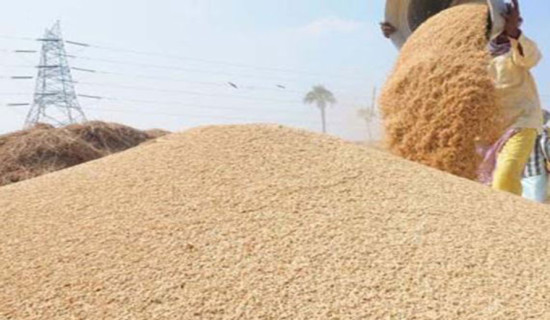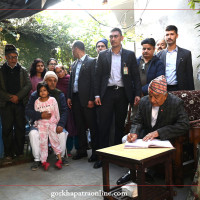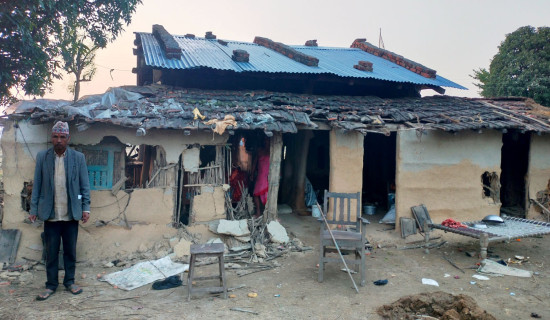- Thursday, 21 November 2024
Agricultural labour shortage in Mahottari
Mahottari, Nov. 21: The farmers in the district are swamped with the activities to harvest paddy and cultivate cash crops. Paddy is the major crop.
Cutting paddy, drying up, threshing, and storing are the activities for completing its harvest. In addition to harvesting the major crop, the farmers are busy in cultivating lands and sowing seeds of wheat and legumes. Other cash crops as potato and sugarcane are also planted in this season.
However, the farmers are worried over shortage of labour at this peak season. Some have been over with paddy harvest, while some are drying up the paddy in fields. Similarly, some fields are still with golden rice ready for harvest.
Immediately after the paddy harvest, the farmers cultivate the land for cash crop, utilizing land moisture for germination. "Thanks to weather this year, we have a good harvest. There is adequate rice yield," said an octogenarian farmer, Dipak Bahadur Phuyal from Ramnagar of Bhangaha-4.
He, however, worried, "There is acute shortage of labour. The paddy is ripe and ready for harvest which needs immediate labour." Even the cultivation for winter crops requires additional labour.
Yogendra Mahato from Gaushala-12 also said additional workforce was required as it was peak season of harvest, but lack of sufficient labour had made them weary and full of hassles. He shared that the labours skilled at harvesting rice and tilling land had left for Punjab and Haryana of India for better job, which caused a shortage in the district.
The active people from Musahar and Bantar communities which are skilled at agricultural works had left for abroad. There are only children, women and elderly ones in their communities now.
However, Ram Julum Bantar from Karpurganj of Bhangaha-5 said the active workforce in the age group of 15-19 years left home because the wage in the village was too low to run family.
Similarly, some of the youths who were able to secure loan from highbrows are in the Gulf countries. This trend has left the farmers in jittery in the district of late. It has resulted into lessening agricultural activities.
As recent as three decades back, the farmers who kept three teams of oxen and devoted to agriculture, are now selling land and migrating to the cities.

















